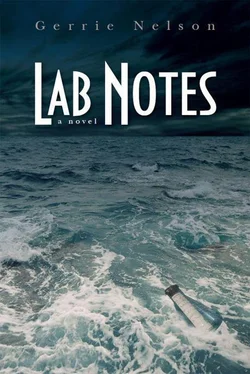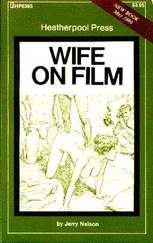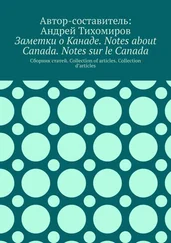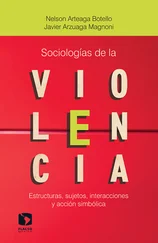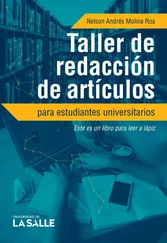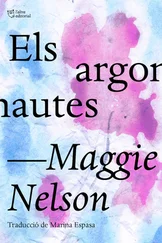Then this morning his father had challenged him to “a duel to the death.” In Gabriel’s state of desolation, his response had been: “Why a duel? Just shoot me.”
Carlos replaced the phone in the receiver and turned to face his son once more.
Gesturing toward the pistols, Gabriel said in exasperation, “Surely you jest about all this.”
Carlos leaned forward. His words were measured. “You have been given special consideration for my sake. But for two years you have shown only disdain for the warnings.”
“Not so. I have detailed my ten-year plan to your lieutenants.”
Carlos slammed his fist on the desk. His eyes narrowed. His nostrils flared. “It is a mockery of all that is right and good.”
Gabriel answered slowly through clenched teeth. “It is just common sense to convert assets from our most powerful resource into legitimate businesses. Then, in ten years, our country will no longer need to produce cocaine.”
Carlos stood up from his desk chair and jabbed his finger in the air to emphasize his words. “What the rest of the world calls money laundering, you refer to as asset conversion? It grieves me that I have sent you to the finest schools in the U.S., and what have you learned? You have become expert at putting spin on your words as well as your actions.”
Gabriel picked up one of the dueling pistols and waved it in the air. “I did not have to leave your house to learn about Machiavellianism. When I was quite young, you exposed me to your ‘Knights’ and their trials in absentia and their imagined mandate to murder.”
He aimed the pistol at Carlos. “You call the use of this barbaric anachronism honorable? Does its expensive ornamentation and ritualized violence exalt it above the level of the street gun?
Carlos collapsed back into his chair. His voice was barely above a whisper now. “In some situations, the courts are impractical tools.”
Gabriel smirked, still brandishing the pistol. “ Judicium Dei —the last man standing assumes his victory represents divine favor. Is that it? You want vindication before God? If it were otherwise, you would have hired an assassin.”
Carlos closed his eyes. “I gave you life. Only I have the right to take it away.”
Gabriel smirked. “How noble.”
Carlos placed his elbows on the desktop and pressed his forehead against his folded hands. The two men sat in silence for several seconds. Then Gabriel spoke.
“Father.”
Carlos flinched. He had not heard that word from Gabriel’s lips in decades. Gabriel saw the effect it had. He continued.
“Your Carabina days were over years ago. I have inherited your accuracy and your speed with the pistol, you know that.”
Carlos raised tormented eyes to his son. “It is too late. It has been done. If I do not honor the pledge I have made, they will kill us both. Another, then another will take up the sword until it is accomplished. If you are the victor, your only recourse will be to leave the country, find a place where you can hide from them—if such a place exists.”
Gabriel shook his head slowly. “There will be no winner here.” He stood up to leave. “I need two days to put some matters in order.”
It rained off and on the next morning; the darkened sky shrouded the earth in a perpetual dusk. Between downpours, Diane donned her wind-breaker and walked Huck. She greeted the neighbors and inhaled the mingled scents of wet gumbo soil, brackish lake water and pine, triggering an unexpected feeling of impending loss.
To Huck’s delight, she walked the entire lake road, avoiding the house and her “To Do” list for as long as possible. But no matter how far she roamed, she couldn’t dodge the awareness of Gabriel’s message locked in her computer’s memory. The unopened email pulsed unrelentingly in the back of her brain.
Returning to the house, she picked up a phone message from Olimpia who was ecstatic that she was okay. She said all was well with her, and she’d call back later that day.
Even with her profound relief that Olimpia was safe, Diane’s mood matched the gloom outside. It was hard to concentrate on the matters at hand—like arranging for the packers and the sale of the house and her car.
But once the phone calls were made, she felt the weight of her possessions falling away, allowing her to focus forward. Tomorrow, she’d clean out her office at BRI. Then there would be only Huck and the Suburban, and the trip back to the Northeast.
David showed up in late morning with a bag of warm kolaches, one of Diane’s addictions since moving south. She made coffee.
They sat at the kitchen counter with the rain drumming on the back deck. Diane told David about an email she had opened from Tung Chen the night before. In doing a new search for Peruvase using the name TekTranz in the parameters, Tung’s people had found Vincent’s drug. It was bought by a Taiwanese pharmaceutical company with a large U.S. affiliate. The drug had been shelved. Tung was going to do a closer investigation.
Diane moved on, telling him about her trip to the Caribbean.
David listened with furrowed brow. Then she told him she was leaving Texas. He began to object. But then he thought better of it. “I’d just be whistlin’ past the graveyard if I said things would turn out alright here,” he said. Somberly, he offered to help expedite her departure.
On his way out, David suggested that she call Sara Solomon. “There have been some developments,” he said.
Diane saw David off, agreeing to meet him at BRI the next day, Sunday.
She returned to the kitchen, unplugged her cell phone from its charger and tapped in Sara Solomon’s number.
Sara answered on the first ring. “Hey, Diane. Good to have you back. How was your trip?
Diane gave her the condensed version she had given David, again leaving out any mention of the Knights of New Granada, the Kogi and her dalliance in the storm with Gabriel.
Sara was amazed by Diane’s assertion that Gabriel Carrera had been responsible for Vincent’s death. She said that she was at a loss to pinpoint a motive. She offered her condolences to Diane then moved on to the business at hand.
“A lot’s been happening here. The authorities are holding Leonard Everly for questioning in connection with the murder of Dr. Harry Lee. We’ve been unable to find Everly’s passport, but we’ve checked with the immigration authorities and they confirmed that he entered Hong Kong the day that Harry Lee was killed and left the next morning.”
Sara went on to report that the dog hairs found on Harry Lee’s jacket matched the ones from Diane’s lint brush.
In the phone call Diane had made to Sara from Olimpia’s house in Aruba, she recounted her conversation with Maxine about Everly’s presence in Asia at the time Dr. Lee was killed. Also, she had told her about the lint brush in a plastic bag hidden inside the piano. The brush contained the hairs from Everly’s dog, Hunter. Remembering the newspaper report of dog hairs on Harry Lee’s body, she had carefully brushed them from her slacks after returning from his ranch.
Now, she listened in numbed silence while the CIA agent went on.
Sara related that she had come to the treehouse and taken the brush as per Diane’s suggestion, but also she had snapped some photos of the writing on the cupola wallpaper. “The code-breakers wanted to know the exact placement of the numbers in relationship to each other,” she said.
It turned out that some of the numbers were GPS coordinates for offshore banks in Bermuda and Singapore. And two groupings were numbers for bank accounts belonging to Raymond Bellfort and Leonard Everly.
The rest of them were telescope settings, mostly for star gazing. But some were compass headings; one of them pointed from the treehouse to Raymond Bellfort’s lakeside home. Harry Lee was spying on Raymond Bellfort.
Читать дальше
